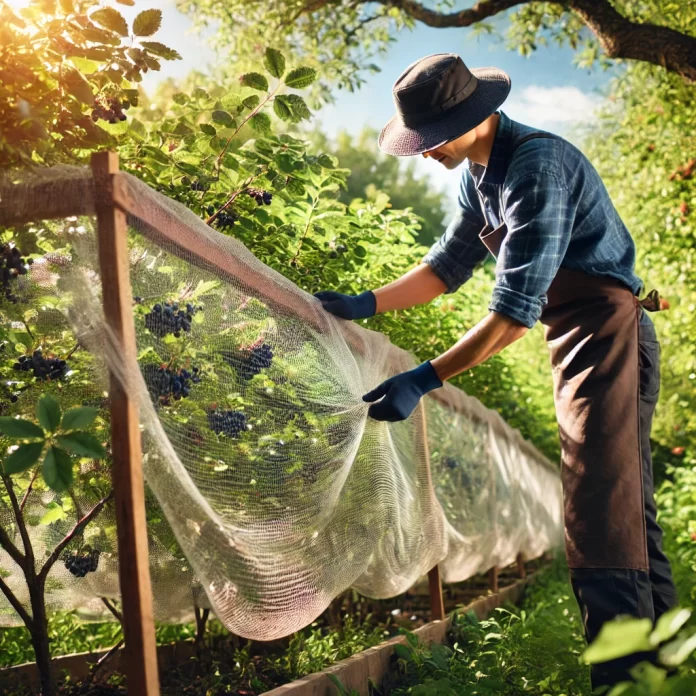Growing fruit bushes like currants, gooseberries, raspberries, and blueberries can be incredibly rewarding, but without proper protection, birds and other wildlife can quickly strip away your harvest. Netting is an effective way to safeguard your crops while allowing air, light, and water to reach the plants. Here’s everything you need to know aboutprotecting fruit bushes with netting.
Why Net Fruit Bushes?
- Bird Protection: Birds, particularly blackbirds and pigeons, are notorious for eating soft fruits before they ripen.
- Pest Deterrence: Netting can help keep out some larger pests like rabbits and deer.
- Improved Yield: Protecting your fruit ensures a fuller harvest with less loss.
- Weather Protection: Some nets provide a level of shelter against harsh weather conditions.
Choosing the Right Netting
Selecting the best netting depends on your garden setup and the specific threats to your fruit bushes. Common options include:
- Fine Mesh Netting (10-20mm gaps) – Ideal for keeping out birds while allowing pollinators access.
- Heavy-Duty Plastic or Metal Mesh – Suitable for deterring larger animals.
- Insect Netting (1-2mm gaps) – Helps prevent smaller pests like aphids but may also block pollinators.
How to Install Netting Over Fruit Bushes
- Use a Frame or Cage – Building a frame ensures the net doesn’t rest directly on the bushes, preventing birds from pecking through.
- Secure the Netting – Fix the net tightly to the frame or stakes to prevent birds from getting trapped inside.
- Allow for Access – Design the netting structure with an opening so you can easily harvest the fruit.
- Check Regularly – Inspect for holes and trapped wildlife, adjusting the netting as needed.
Best Practices for Netting Fruit Bushes
- Remove netting after the harvest season to avoid unnecessary obstruction.
- Ensure netting is taut and well-supported to prevent sagging.
- Use wildlife-friendly netting with a fine mesh to prevent birds from becoming entangled.
- Leave some un-netted fruit for wildlife if you want to encourage biodiversity.
Alternatives to Netting
If netting isn’t suitable for your garden, consider these alternatives:
- Fruit Cages – Permanent structures offering full protection.
- Scare Tactics – Hanging CDs, wind chimes, or reflective tape can deter birds.
- Companion Planting – Growing deterrent plants like lavender or marigolds nearby may help.
Netting fruit bushes is an effective and simple method to safeguard your crops while keeping your garden productive. By using the right type of netting and setting it up correctly, you’ll enjoy a more bountiful harvest with fewer losses to wildlife. Happy growing!




